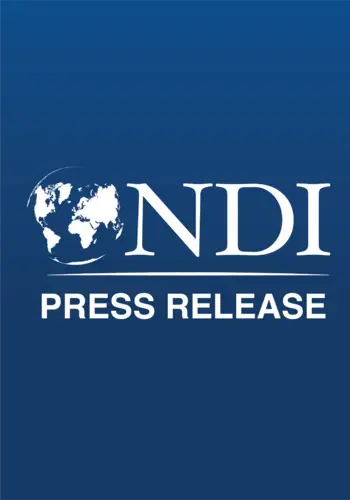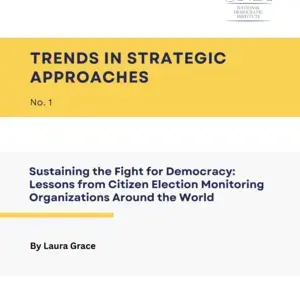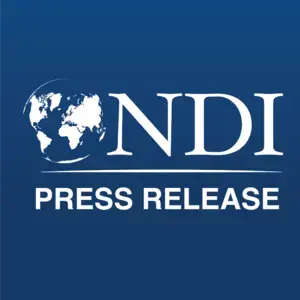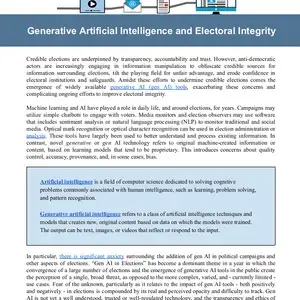IMMEDIATE RELEASE
May 7, 2014
Contact:
Traci D. Cook, Senior Advisor, National Democratic Institute Malawi
0998096910, [email protected]
Chris Chisoni, National Secretary, Catholic Commission for Justice and Peace
0888301957, [email protected]
BLANTYRE - Agriculture, health care, education and the economy lead the list of issues needing intensive discussion and debate during the electoral period, according to participants in a recently released qualitative public opinion research study. These are also the areas participants say should be top priorities for the president elected on 20 May.
“The voice of the ordinary citizen can easily get lost during the hectic campaign period,” said Chris Chisoni, National Secretary for the Catholic Commission for Justice and Peace. “This study highlights what the participants find truly important – not personalities or regional politics – but instead issues that are critical to improving the quality of their lives.”
The study also explores participant impressions of past and current election processes. Most of the participants praise the initial voter registration process, saying it was fair and most citizens had a chance to register. Enthusiasm for voting is high among the participants, who also say the vote is their personal choice and they cannot be unduly influenced to change their vote. At the same time, the belief that rigging has been a part of past elections, the perception that political party primary elections were of poor quality and persistent concerns about, and lack of understanding around, protections for counting and vote aggregation processes raise some questions about the conduct of the election this year. Participant comments indicate, however, that confidence in the election can be bolstered by consistent communication from the Malawi Election Commission regarding mechanisms that have been put in place to ensure against fraud and by the involvement of civil society organizations (CSOs) to watch over the election processes. Participants feel reassured by the presence of Malawian citizen observers in polling stations and especially by those who will watch the counting and vote aggregation processes and have the ability to check those results against the Malawi Election Commission’s (MEC’s) announced numbers.
“Participants in this study demonstrate a high level of commitment to the democratic process, but they also want assurances that adequate election safeguards are in place,” Chisoni said. “It is now the duty of MEC to communicate about protections for the vote and of civil society organizations to keep a watchful eye so we that can achieve what all Malawians want: a credible election that reflects the genuine will of these participants and the public at large.”
The Catholic Commission for Justice and Peace (CCJP) and the National Democratic Institute Malawi (NDI Malawi) jointly conducted this research from January 27-February 14, 2014. The study used a qualitative methodology known as focus group discussions. Malawi university students or graduates were trained to lead the discussion groups, which were conducted in Chichewa or Chitumbuka. Thirty-five (35) group discussions were held with men and women separately in three different age categories. Discussions were conducted in rural, peri-urban and urban areas in 24 districts across Malawi, and 420 citizens participated in the study. The research was funded by the U.S. Agency for International Development (USAID).
Qualitative Methodology: The methodology included in this study is qualitative, not quantitative. As such, it is not a poll or survey. The purpose of quantitative methodologies, such as polls and surveys, is to measure opinion. The purpose of qualitative methodologies, such as the focus group discussions used in this study, is to understand opinion, specifically the meanings, reasons and motivations that underlie commonly held participant opinions. This methodology also allows for the gathering of more subtle and nuanced opinions than is normally possible in a poll and also provides insight into how views may be impacted by group dynamics. This type of in-depth information helps election stakeholders better understand how participants are viewing key issues and so can provide important clues for how to address misperceptions or to build upon existing opinions. Although an effort was made to ensure the participants included in the study came from a broad cross-section of ordinary Malawians, the sample of citizens in this study were not recruited using a statistical random sample, such as is used in polls or surveys and so the study is not generalizable to the population at large and cannot serve as a measurement of citizen attitude.




